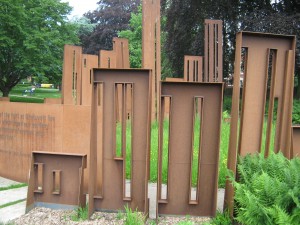Vintage Poetry: ‘The Owl’ by Edward Thomas – discourse by Frank McMahon

The Owl is a poem written by Edward Thomas, one of the most celebrated of the poets writing about the First World War. Most of his poems are not directly about the trenches but the war features in a more oblique way.
It is a poem about both fulfilment and deprivation, and draws on Thomas’s experience of the front line. It is also a poem about the emotions of empathy and guilt.
The poet is tired, hungry and cold but he will get rest and reach the “sweetest thing under a roof”. His physical discomfort is temporary. The first word of the poem is “downhill”. He has completed the effort of climbing up the hill and things will be easier for him from now on. While the poet recuperates with warmth, rest and food he suddenly hears the owl’s cry, which is explicitly said to be “melancholy” and “no merry note” and penetrates the silence of the night. The owls cry reminds Thomas of the suffering he had undergone when he was on the hills but more so it reminds him of the more permanent greater suffering of those who could not escape. He says that he has “escaped”. The owl’s cry seems to represent his conscience and his capacity for empathy. The owl represents for Thomas “all who lay under the stars, soldiers and poor, unable to rejoice.”
Suddenly his food seems “salted”. This implies that he feels guilty about the suffering that he has escaped and other could not. He suddenly loses in some sense the pleasures of the inn.
I find the poem, which uses simple language, powerful, especially the wonderful metaphor of the sound of the owl in the night.
Frank McMahon
Edward Thomas: the owl.
Downhill I came, hungry, and yet not starved;
Cold, yet had heat within me that was proof
Against the North wind; tired, yet so that rest
Had seemed the sweetest thing under a roof.
Then at the inn I had food, fire, and rest,
Knowing how hungry, cold, and tired was I.
All of the night was quite barred out except
An owl’s cry, a most melancholy cry
Shaken out long and clear upon the hill,
No merry note, nor cause of merriment,
But one telling me plain what I escaped
And others could not, that night, as in I went.
And salted was my food, and my repose,
Salted and sobered, too, by the bird’s voice
Speaking for all who lay under the stars,
Soldiers and poor, unable to rejoice.